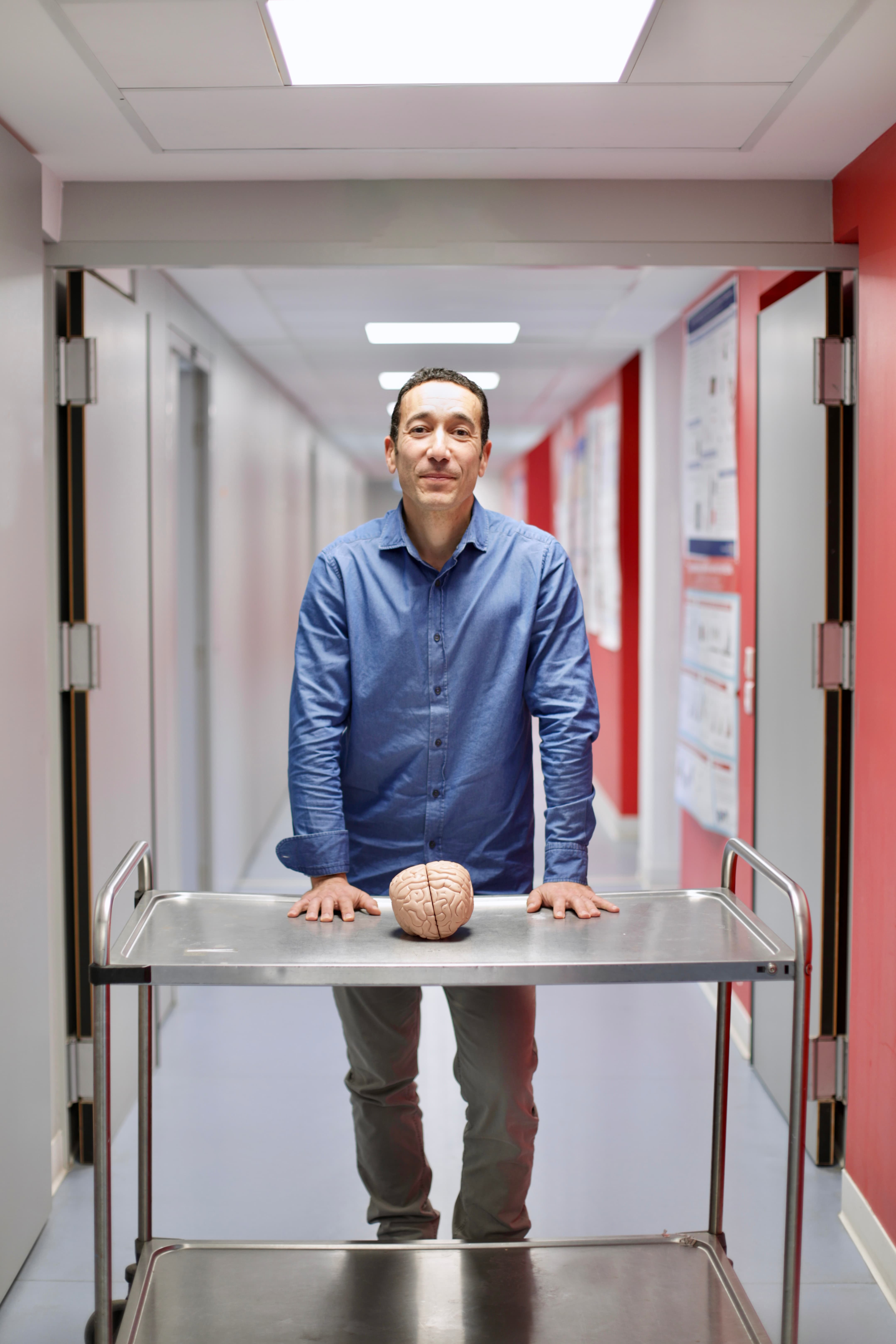Jacques Barik, the impact of nicotine on young people's brains
- Science and society
- Research
Published on November 17, 2025
–
Updated on November 17, 2025
Dates
on the October 27, 2025

Discover the portrait of Jacques Barik, CNRS researcher, member of the Institut de Pharmacologie Moléculaire et Cellulaire (Université Côte d'Azur, CNRS, INSERM).
His research
At theInstitut de Pharmacologie Moléculaire et Cellulaire (Université Côte d'Azur, CNRS, INSERM), Jacques Barik studiesthe molecular mechanisms and eventscular mechanisms and events underlying the impact of nicotine on the brain , with a view to developing treatments to aid smoking cessation.Smoking is one of the leading causes of preventable death, regardless of gender, and nicotine dependence is associated with multiple psychiatric comorbidities. In addition to continued high cigarette consumption, vaping has become an extremely popular alternative method of nicotine absorption, particularly among teenagers. Nicotine dependence therefore remains a major public health problem.
This project focuses particularly on adolescence, a key period in the development of addiction. Indeed, among smokers, those who started smoking during adolescence are more likely to become addicted in adulthood. The brain undergoes major transformations, favoring the emergence of adult behaviors. Nicotine disrupts this maturation process, making adolescents more susceptible to addiction.
The aim of the NICADO project is toexplore nicotine-induced brain changes and understand the mechanisms underlying addiction. In particular, we are focusing on dopaminergic neurons in the ventral tegmental area (VTA), a key brain region involved in motivation, pleasure and emotion. These nicotine-sensitive neurons are often impaired in psychiatric disorders such as anxiety, depression and decision-making disorders.
The main objectives of the project are :
At theInstitut de Pharmacologie Moléculaire et Cellulaire (Université Côte d'Azur, CNRS, INSERM), Jacques Barik studiesthe molecular mechanisms and eventscular mechanisms and events underlying the impact of nicotine on the brain , with a view to developing treatments to aid smoking cessation.Smoking is one of the leading causes of preventable death, regardless of gender, and nicotine dependence is associated with multiple psychiatric comorbidities. In addition to continued high cigarette consumption, vaping has become an extremely popular alternative method of nicotine absorption, particularly among teenagers. Nicotine dependence therefore remains a major public health problem.
This project focuses particularly on adolescence, a key period in the development of addiction. Indeed, among smokers, those who started smoking during adolescence are more likely to become addicted in adulthood. The brain undergoes major transformations, favoring the emergence of adult behaviors. Nicotine disrupts this maturation process, making adolescents more susceptible to addiction.
The aim of the NICADO project is toexplore nicotine-induced brain changes and understand the mechanisms underlying addiction. In particular, we are focusing on dopaminergic neurons in the ventral tegmental area (VTA), a key brain region involved in motivation, pleasure and emotion. These nicotine-sensitive neurons are often impaired in psychiatric disorders such as anxiety, depression and decision-making disorders.
The main objectives of the project are :

The impact of nicotine on dopaminergic (DA) neurons during development: The team is analyzing how nicotine exposure during adolescence affects the maturation of dopaminergic neurons in the brain, by studying changes at the cellular and molecular level.
The effects of chronic nicotine exposure in adulthood: They are examining how prolonged nicotine consumption during adulthood affects these neurons, and the impact of withdrawal on their function, notably on their dopaminergic activity.
The role of the laterodorsal tegmental nucleus (LDTg): They are studying how nicotine exposure alters the functioning of the LDTg, another brain region involved in the production of acetylcholine, a neurotransmitter that interacts with the dopaminergic system, and its role in regulating addiction.
Adult behavior after nicotine exposure during adolescence: They are analyzing the impact of early nicotine exposure on adult behavior, in particular on motivation, decision-making processes and emotional states.
His inspiration
My supervisors and some of my colleagues!
Results and prospects
Preliminary results already show disturbances in dopaminergic brain circuits in mice exposed to nicotine, suggesting an alteration in reward and motivation mechanisms . The research team hopes that these observations will lead to a better understanding of the biological mechanisms of nicotine addiction, and to the identification of potential therapeutic targets.
Ultimately, this project could lead to the development ofnew treatment strategies to help smokers, particularly young smokers, free themselves from their addiction and prevent associated psychiatric disorders.
Curious to find out more about the NICADO project or Jacques Barik's career?


